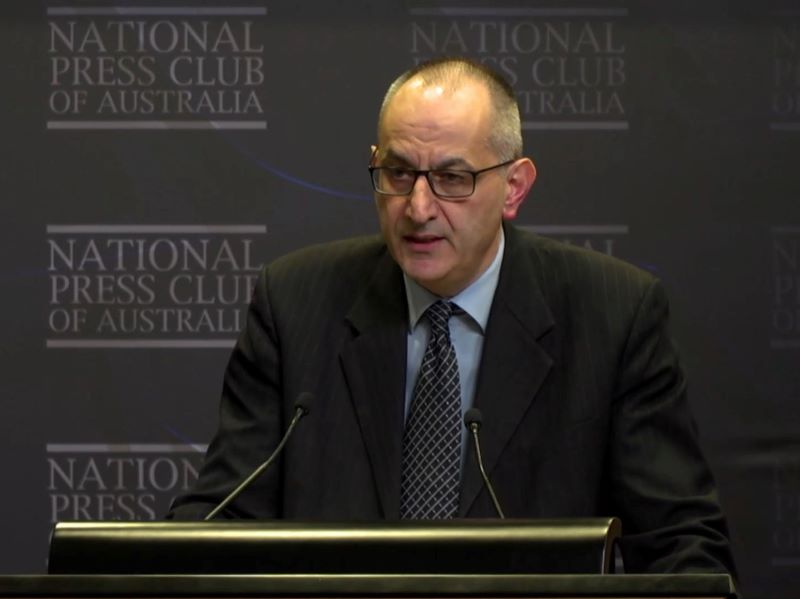Home Affairs secretary Michael Pezzullo has no hope that humanity can “reset itself” in space, warning the new frontier will be contested and open to “tyranny”.
In an address to the local space industry, the powerful mandarin reiterated the government’s plan to treat Australian space technologies as critical infrastructure, including applying controversial new security laws to the budding commercial sector.
“I regret to inform you that when we go into space, or when we use space, we bring ourselves on that journey,” Mr Pezzullo told the Southern Space Symposium in Canberra.
“Which means that we bring human hope, innovation, freedom and creativity, as well as malice, fear, avarice and tyranny.”

Mr Pezzullo praised the fast growing local space sector and said Australia is increasingly reliant on space and space enabled technologies. But added they warranted policy terms and strategic tools like those applied in terrestrial domains, including “deterrence, risk, protection [and] resilience”.
“None of this has to detract from positive possibility. Our idealism, however, has to be tempered with realism,” he said.
Mr Pezzullo’s Home Affairs department included space technology as critical infrastructure in recently passed national security reforms that allow the government to step in and take control of facilities and equipment as a “last resort” in the event of a cyber attacks, and introduces a new cyber incident reporting scheme.
Part of the laws passed last week, after the government split the Security Legislation Amendment (Critical Infrastructure) Bill 2020 in two on the recommendation of the parliamentary security committee. The second bill, which introduces positive security obligations for critical infrastructure operators will be introduced early next year.
On Monday, Mr Pezzullo said the new laws are needed because Australia’s critical infrastructure is at risk of foreign interference and cyber attack, warning a successful attack could have a “catastrophic effect on the functioning of society as a whole”.
“A cyber attack, for instance, on space infrastructure such as on satellites themselves or ground systems that control them could easily result in widespread degradation or indeed destruction of communications, positioning systems, navigation systems and timing systems.”
Parts of the industries which will now be considered critical infrastructure operators have pushed back on the new laws, labelling them “problematic” and warning more consultation is needed to co-develop the new regulations they create.
Mr Pezzullo said the Australian commercial space sector would not be an immediate are of focus for Australia’s security agencies under the new powers, which require a “test of catastrophic or significant impact on society and economy”.
“There are some no brainers that we’re going to prioritize early. The banking payment system, the ability to both generate and distribute power…[and] the management of our water catchments and dam infrastructure — but from the point of view of catastrophic impacts…
“So in those well developed, deeply mature sectors that are already highly regulated, it’ll be a question of really working your way through what are those critical pinch points or those critical vulnerability points that an adversary state or non-state would want to attack in order to create a catastrophic impact on the nation as a whole?”
This approach to the new powers means Australia’s emerging commercial space sector is “a bit different” in the eyes of the Home Affairs secretary, who told delegates their sector had been “parked” in the legislation because more rules would need to be developed.
“As [Australia’s space sector] grows in we want to work with industry. And it might be initially very little if any, will be regulated, potentially. But not having the sector defined, we thought was ill judged and ill advised.”
Do you know more? Contact James Riley via Email.

